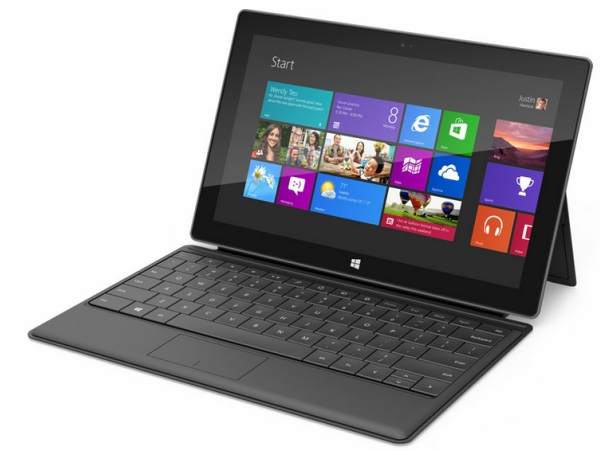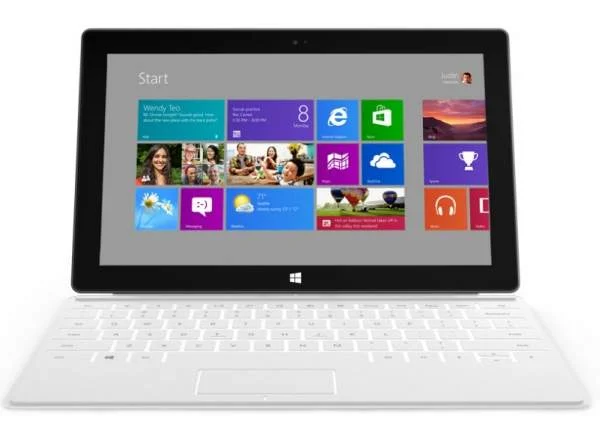Microsoft recently confirmed it would be manufacturing an indigenously designed lineup of Windows 8 Surface tablets that should be hitting shelves sometime this fall.
Clearly, Redmond is hoping to steal a good chunk of Apple’s iPad dominance – estimated to be somewhere around 53% of the worldwide tablet market.

The announcement detailed two primary tablet architectures: Windows RT for the ARM-powered version and Windows Pro for the x86 iteration. With a sexy look and case cover that doubles as a keyboard, the new tablets offer a variety of tablet-centric bells and whistles, although there are still a number of lingering questions about a number of items such as 4G support.
Of course, as soon as the press releases hit the inboxes of the tech-world journalists there seemed to be a fair amount of skepticism regarding how successful Microsoft could be and how the other tablet manufacturers like Samsung, HP, and others would react to competition from Microsoft.
First off, I agree with some of the other analysts who said that Microsoft got a lot of things right including the sexy look (gotta have that), the cover that doubles as a keyboard (it’s about time!), and a real OS. Frankly, I’m withholding judgment on the ARM version of Surface since the Metro OS sounds a little bit too stripped-down and will only support apps built specifically for Windows RT.
But can Microsoft compete with Apple (or anyone else for that matter) on the hardware front? Yes, Redmond has done a pretty decent job with the Xbox 360 and Kinect by entering a market reserved for giants with giant-sized pockets. But the Xbox is a proprietary device – nobody but Microsoft can
manufacture them.

You can, however, develop Xbox titles using off-the-shelf hardware, unlike any of the other game platforms, and Microsoft wasn’t quite as draconian about controlling what the developers did. This made it easier and cheaper for companies to develop Xbox titles, which is obviously a good thing. Finally, the Xbox hardware was, and still is, pretty impressive compared to the other consoles. So Redmond did a few things right and it seems to have paid off big time.
But the game console market is a slightly different animal than the tablet market. First off, the Microsoft tablet won’t be a proprietary device (at least not for long). Third party manufacturers should be able to install Windows 8 on whatever they want and run pretty much the same stuff that a Microsoft tablet does.
Let me back up a step or two here. Frankly, I wouldn’t put it past Microsoft to give itself a few under the hood advantages. They’ve done it in the past with software that takes advantage of undocumented features of the OS while telling developers not to use those features since they might change at any moment. So it’s quite possible we will see some applications running faster on a Microsoft tablet than on anyone else’s tablet – even using the same OS.

While third-party hardware manufacturers might be a little miffed that they have yet another competitor to deal with they aren’t going to say “Oh darn, now that Microsoft is in the market I guess we’ll just have to give up on tablets and start making running shoes.”
Instead, I think they’re going to wish Microsoft all the luck in the world because if Redmond can mount a
significant attack on Apple everyone else will be right behind with second-generation tablets of their own.
Plus they can all piggyback on Microsoft’s research, ideas, innovations, mistakes, and successes. Let MS pay for all that and do the heavy lifting for them. If it turns out that pretty colors and case covers with keyboards are the key then they can do that too. If Microsoft gets hammered for missing something important then everyone else can offer it as a special feature.
Another big advantage Microsoft will likely have is a more open developer environment. Anyone will be able to develop whatever apps they want for the new tablet and a lot of developers are going to scramble to jump of that bandwagon.
Of course an open environment can be a double-edged sword. When you control the app market you can enforce things like quality, consistency, and, of course, content – something that the Android market
lacks.
Users can expect a certain level of consistency with iPad apps, where the Android market is… well, chaotic at best.
So an open developer environment means lots of diverse apps will spring up like flowers (and
weeds) while a tighter developer environment makes for a somewhat smaller, yet tidier garden. But Windows users are used to this and don’t blame Microsoft as much as they blame the developers who create wonky apps.
I think, however that the real key to a Microsoft tablet’s success is going to be the OS. Out of the gate the MS Surface tablet will have a monumental number of Windows apps available – and I’m not talking about Angry Birds or Power Chord Player or Pretty Paint with Neo-Retina color enhancement.
There used to be an old saying in the industry “No one ever got fired buying IBM” and that saying, at least in the general business sector, has shifted to “No one ever got fired buying Microsoft.” Yes, Apple may have the perception of having the ‘creative edge,’ but the boring truth is bosses don’t want their employees being creative. They don’t want them painting pretty pictures with their tablets or making music or socializing with their network of friends more efficiently.
They want their employees to do their jobs. They will pick productivity over creativity every time. And the vast majority of business apps are Windows based. Of course the overwhelming majority of entertainment and creativity apps are also Windows-based, but we won’t mention that to the boss.






